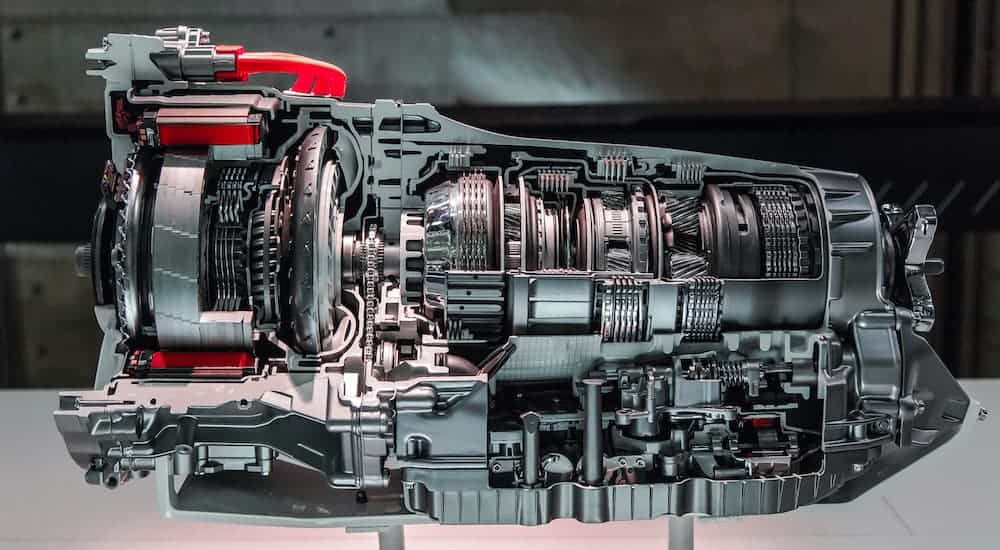Even though it is one of the most popular cars in the United States, the Honda Civic still requires regular maintenance like any other vehicle. One of the key aspects of maintaining good vehicle health for your Civic is routine oil and transmission fluid changes. Without these vital fluid changes, your vehicle can face serious issues like the engine seizing. Transmission problems can very easily shorten the lifespan of your vehicle greatly, especially if it’s a used Honda Civic, where wear and tear can severely affect the longevity of the powertrain.
How Often Do I Need to Change the Oil in a Honda Civic?
Depending on the make and model of your Honda Civic will determine how often you’ll need to change the oil. You should be able to find these fine details about regular oil maintenance inside of the owner’s manual handbook. However, changes to your car’s oil will also greatly depend on how old the vehicle is, what sort of engine oil it takes, and how often you drive it.
For Honda Civics made before the eighth generation, they will need to have the oil changed, or at the very least, checked approximately every 3,000 miles. Honda Civics made between the eighth and tenth generation will typically need to have the oil checked every 5,000 miles or once every year, depending on your driving habits. And you should have the oil checked before the oil change light comes on.
While the general rule is usually to check the oil in a Honda Civic every 12 months, newer iterations of the Civic can actually go a lot longer than previous models without a change, averaging between 7,500 and 10,000 miles before needing an oil change. That said, anything can go wrong at any point with a vehicle. Continue to take your Honda Civic to your mechanic every 5,000 miles for a routine inspection.
It’s still wise to frequently check the oil level at least once every month (especially if a lot of wear and tear is put on the vehicle). You should do this even if the owner’s manual suggests that you can go up to or over 10,000 miles before changing the oil.

Can I Use Synthetic Oil in a Honda Civic?
The reason that newer vehicles can go longer without an oil change is due to synthetic oil, which can be cycled through the engine and oil filter for longer than conventional oil because it contains fewer contaminants, thus it works more efficiently to keep the engine running smoother and for longer. Synthetic oil can average between 7,500 miles and up to 15,000 miles before needing to be changed. So simply put, if your car can make use of synthetic oil, you should absolutely use it.
For example, Mobile claims their full synthetic oil can average between 7,500 miles and up to 20,000 miles before needing to be changed.
The reason synthetic oil is capable of lasting longer than conventional motor oil is because it contains less impurities. This allows the oil to keep the engine running longer, cleaner, and more efficient than conventional oil. The latter tends to build up sludge over time, which can clog up the engine parts or wear down the lifespan of an oil filter much faster, since the filter has to catch more contaminants as opposed to synthetic oil.
Synthetic oil is also considered cleaner because while it still contains crude oil at its base––much like conventional motor oil––it’s further refined with a number of other synthetically constructed additives and minerals to purify the mixture on the molecular level. What this means is that it creates less toxic buildup within your engine, thus allowing you to go much longer without replacing the oil.
Synthetic Oil vs Conventional Oil Prices
Newer generation Honda Civics after the ninth generation are optimized to run on synthetic oil, which means that they are designed to operate at high mileage before needing an oil change. This can alter how much oil you’ll have to keep putting into the vehicle over a period of time.
For conventional oil, the prices are usually much lower than synthetic oil. You can get conventional motor oil for under $30, while synthetic oil usually runs for just under $50. Oil change prices are also cheaper for conventional oil compared to synthetic oil, but that’s because performance is lower. According to a study conducted by the company AAA, engines running synthetic oil performed better by up to 47% compared to conventional oil.
Simply put, since synthetic oil doesn’t degrade and turn into sludge by becoming more viscous like conventional oil, and since it lasts longer, the price is higher. This also applies when you’re getting an oil change, where conventional oil will run you slightly higher prices to have it changed compared to having a mechanic perform a synthetic oil change on your car. However, the extra money pays off in the long run because not only does it mean you have to perform fewer oil changes (which reduces costs in the long run), but it also means that your car will run for longer.
In the case of a Honda Civic, you will absolutely want to preserve the engine as much as possible because the Civic can run for several hundred thousand miles with proper care. Proper and periodic oil changes with synthetic oil is a great way to extend the life of a Civic and push it to the limit in terms of making use of its long-running lifespan.
How Often Should I Change the Transmission Fluid?
In addition to keeping your motor running in tip-top shape with regular oil check-ups and frequent maintenance of the oil filter, another fluid-based component that will need your attention on occasion is the transmission.
So, how often should you change the transmission fluid? The good news is that you won’t have to change the transmission fluid very often, and it’s recommended you change the fluid just under the 100,000-mile mark. According to most Honda owner’s manuals, the automaker suggests that Honda ATF-Z1 automatic transmission fluid be used to service your transmission for seventh generation and earlier Civics. Barring the availability of the ATF-Z1, it’s advised to use Dexron III as a temporary contingency until you can fill up the transmission with ATF-Z1 as soon as possible.
Also, keep in mind that with a Honda Civic made after the eighth generation, it will require Honda’s newer transmission fluid replacement, which is ATF DW-1. The newer fluid has less viscosity, meaning that it helps to preserve the transmission parts for longer.
For most Honda Civics, based on the average transmission lifespan, you may only need to replace the transmission fluid once within your ownership of the vehicle.

Can I Use Other Transmission Fluids in My Honda Civic?
Yes, you can use other types of transmission fluids in your Honda Civic, but you should be warned that it can affect the overall performance of your Civic, as well as the life of your Civic’s components. The main reason that Honda suggests to stick with its ATF is so that you not only gain the most out of the Civic’s fuel economy, but it keeps the parts working for much longer without incurring wear and tear that occurs when using other types of transmission fluid.
At the time of writing this, Honda’s ATF is typically available in a four-pack for $40. Alternatively, there are other third-party transmission fluid options, such as Valvoline’s fully synthetic ATF that some enthusiasts have been experimenting with in their Honda Civics, but it’s advised by Honda not to use any other brand of transmission fluid. The reason for this is because the fluid can cause shift-slippage, which in turn can wear down the parts quicker, which in turn can cause leaks and lessen the total lifespan of the transmission…for the worse.
Extending the Life of Your Honda Civic
If you stick to what’s suggested in the owner’s manual or regularly check your oil and transmission fluid in a new or used Honda Civic, it should operate for many years. Just remember to give your Civic a fluid change or schedule one with your dealer, as suggested in the owner’s manual, to extend the life of your vehicle.

